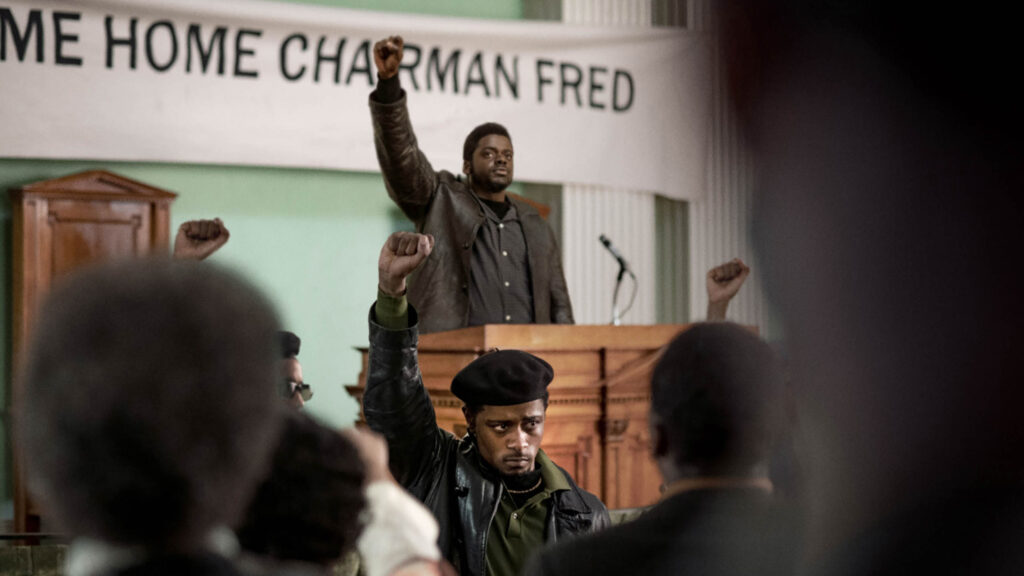The biopic genre is forever caught between two occasionally conflicting notions. Reality and the dream. Feature film runtimes are hardly the best spaces to thoroughly explore complex history, two hours to depict an era or a movement. Narrative fares much better when it comes to conveying the spirit of the ideas that can change the world.
Director Shaka King crafts Judas and the Black Messiah with a keen sense of the injustice of Fred Hampton’s persecution by J. Edgar Hoover’s FBI, culminating in a police raid that it would seem more than fair to call an assassination. To the government, the young leader in Chicago’s Black Panther poses an existential threat to the political world, a powerful speaker with the gift to organize the various warring factions of his city, regardless of race.
The Fred Hampton (Daniel Kaluuya) we see on screen is hardly deserving of the rage depicted in several Hoover (Martin Sheen) rants, fundamentally racist in nature. At the core of Hampton’s radical plans lie something that actually might reasonably be considered radical to the complacent D.C. politicians, concerned only with their own power. Hampton pioneered the Free Breakfast Program, feeding the hungry among Chicago’s black youth.
In politics, a desire to genuinely serve thy neighbor is considered radical. King continuously grapples with the notion that “politics is war, war is politics,” particularly concerned with the latter. There is something quite radical in watching Hampton grow his organization from the ground up, a politics designed to uplift the many rather than the individual. King’s narrative captures the feel of organizing in action, the day-to-day work that goes into bringing about real change.
William O’Neal (Lakeith Stanfield) is a man caught between two worlds. A true believer in Hampton’s vision, O’Neal is forced into the role of Judas when FBI Special Agent Roy (Jesse Plemons) catches him impersonating an FBI agent, fulfilling Hoover’s mandate to find an informant who could bring Hampton down. Both O’Neal and Roy see the power in Hampton’s ability to unite Chicago based on class struggle, a sentiment overwhelmed by the sheer force of one of America’s most powerful individuals.
Only 21 years old at the time of his assassination, Hampton quickly made a powerful impact on the country. With that in mind, King almost feels like he’s slowing things down through the 126-minute runtime, carefully depicting each figure’s own struggle to understand their place in a movement rapidly growing bigger than any one individual. King not only captures the power of grassroots politics coming alive, but the effect of its weight on those determined to bring about change.
King’s third act delivers the gold standard that all biopics should aspire to live up to, a keen understanding of history and legacy. Rarely does a director so forcefully demonstrate the care with which he crafted his work and the stakes at hand. The conclusion presents King’s findings in such stark terms that he makes you want to simply start the film over once the credits start rolling.
Kaluuya and Stanfield have never been better, intricately depicting the wear and tear that the grind has on their psyches. Through Kaluuya, you see why figures like Hampton are so hard to come by. It’s not enough to capture lightning in a bottle, you have to do it every single day. Nothing happens through fate or destiny, but by the work of people like Hampton to organize the masses.
